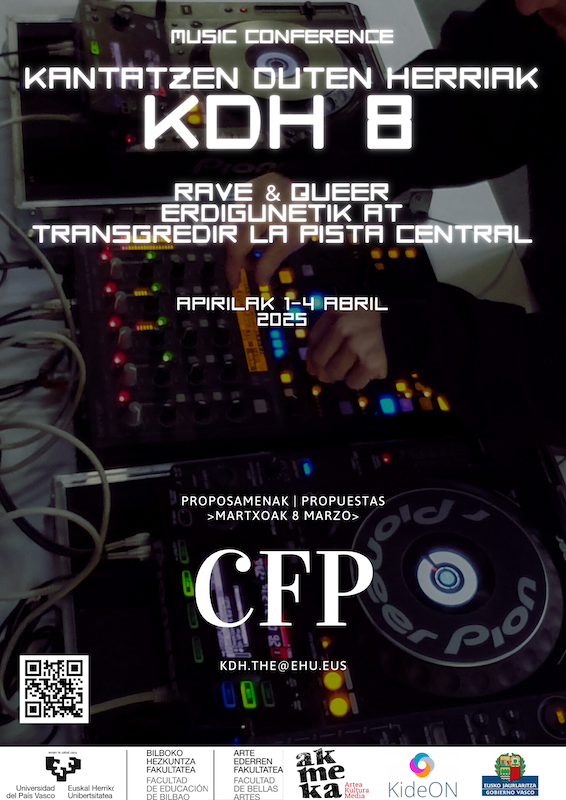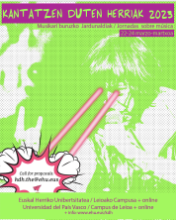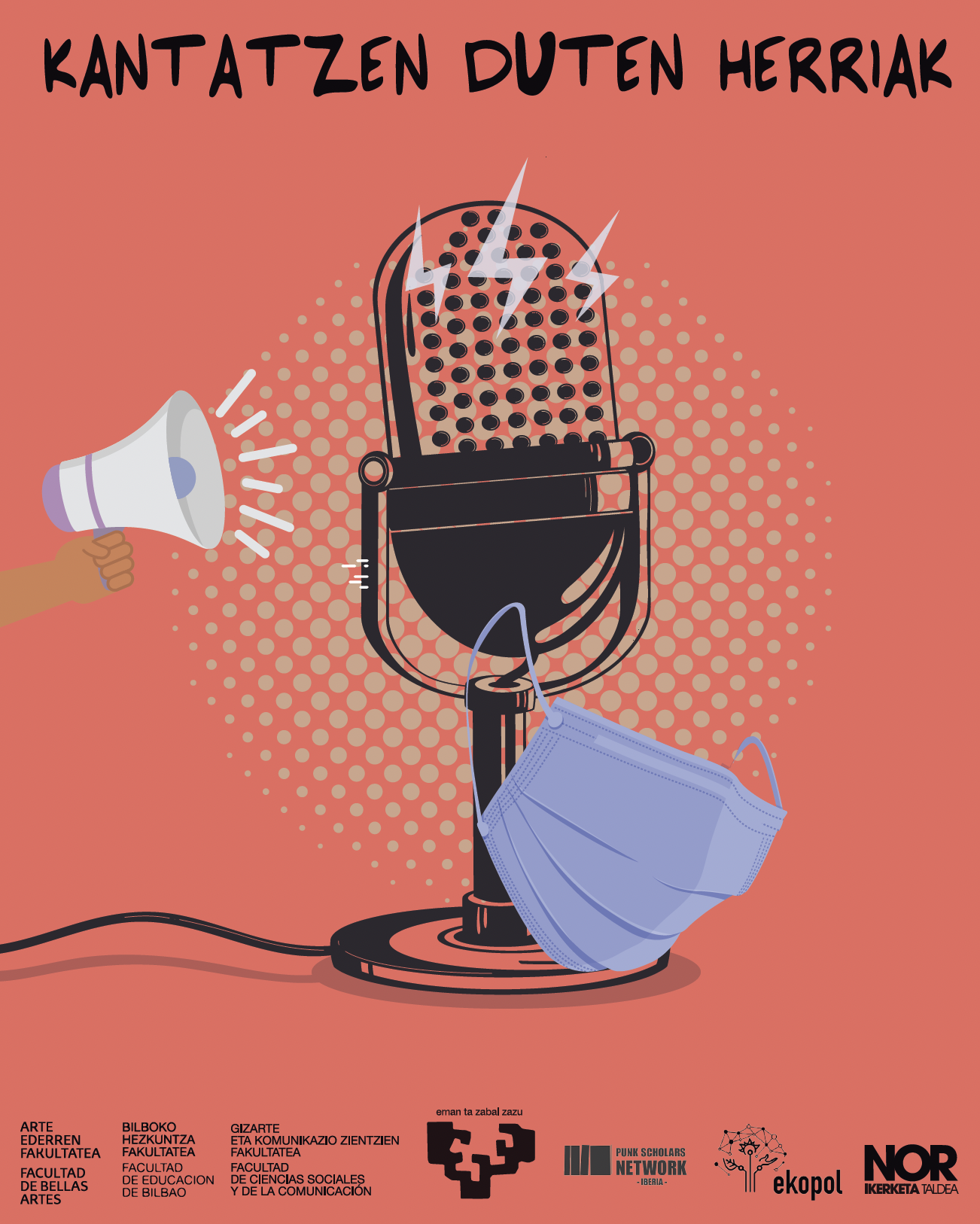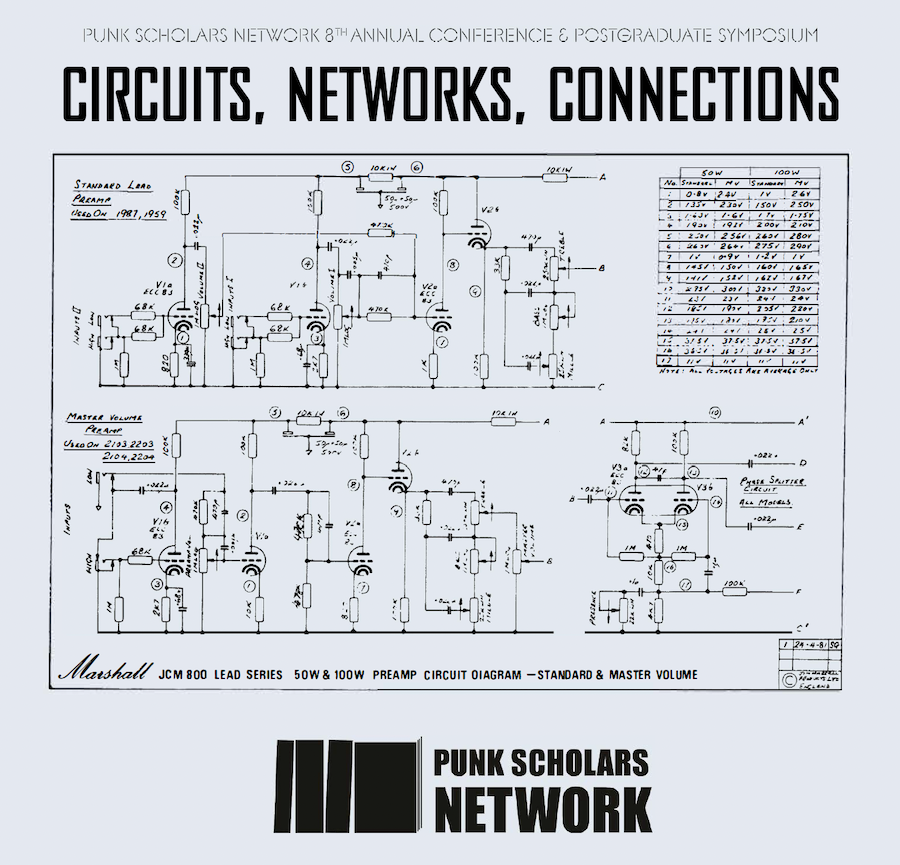World Languages and Cultures
David Vila Diéguez Co-organizes Conferences
David Vila Diéguez, Ph.D., Assistant Professor of Spanish in the School of World Languages at California State University, Monterey Bay, is pleased to announce Calls for Proposals. Details below or by contacting Dr. Vila Diéguez.
KDH8–2025

Kantatzen Duten Herriak (KDH Vol. 8)
Call For Proposals! Apirilak 1-4 abril 2025 Online submissions in Basque, Spanish, Portuguese, English, and Catalan are welcome at www.ehu.eus/kdh. Don't hesitate to get in touch with Dr. David Vila Dieguez for more information.
[EN] The distinction between musical centres and margins has always been central in contemporary music, just as in any social and cultural sphere. Within this framework, the bridges between the alternative and the commercial, as well as the interplay of resistance, provocation, and hegemony, have always been an integral part of its evolution, the logic of musical change, and the way it articulates social meanings. In the 21st century, as the ways in which these distinctions—between the commercial and the alternative, the normative and the transgresive, the powerful and the subaltern—are defined, experienced, contested, and articulated are being reconfigured, the world of music is also reinventing itself. The social and technological reinvention of how music is consumed and how discourses around it are shaped goes hand in hand with a multitude of phenomena, such as the emergence of the urban scene within the commercial mainstream, the relational and symbolic spaces represented by raves, and the various manifestations of queer identities in musical scenes. In the midst of this frenetic pace of change, the ways in which the structuring of social and cultural centres and margins is conceived, lived, and negotiated are constantly being articulated and rearticulated.
At Kantatzen Duten Herriak (KDH), driven by our interest in contemporary sounds and music and their relationship with society, we extend an open call in this eighth edition to speakers, guests, and collaborators to help us explore, from every possible angle, the redefinition of musical centres and margins and their connection to social centres and margins. How do different musical scenes articulate dissidence, queerness, subalternity, and deviation? How do they interact with one another, and how is the dynamic between the commercial centre and alternative or underground margins shifting?
We invite submissions of oral presentations, sound interventions, performative lectures, small-format concerts, and other contributions that engage with the redefinition of the dynamics between centre and margins. This does not exclude other topics related to the themes we always address in these sessions—music, culture, and creativity and their broader relationship with society. Proposals may be submitted either in person or online. As always, participation is free, with no registration fees.
Submissions should be sent to kdh.the@ehu.eus by March 8th, 2025
Previous Conferences
KDH 2023

The conference Kantatzen Duten Herriak (People that Sing) is returning for its 6th edition. This time, it will be held on a different date, 22, 23, and 24 of March 2023, at the Biscay campus of the University of the Basque Country (UPV/EHU) in a mixed format of in-person and virtual attendance. As always, participation is free and open to all.
The conference will approach music and its social impact from diverse academic perspectives. At the same time, it will also provide space for experience and experimentation, with musical proposals also being accepted.

Music is returning to the stage, and to the dance floors.
Likewise, the conference Kantatzen Duten Herriak (People that Sing) is returning for its 5th edition. It will be held at the Biscay campus of the University of the Basque Country (UPV/EHU) on December 14, 15 and 16, 2021, in a mixed format of in-person and virtual attendance. As always, participation is free and open to all.
The conference will approach music and its social impact from diverse academic perspectives. At the same time, it will also provide space for experience and experimentation, with musical proposals also being accepted.
The deadline to submit academic, musical, and experimental proposals (free theme) to the conference is November 7. Send them, stating your preferred format (in-person or virtual), to dviladieguez@csumb.edu
For more information see the Kantatzen Duten Herriak website or download the CFP

PSN: CIRCUITS, NETWORKS, CONNECTIONS
Punk is a truly global phenomenon that manifests in myriad ways across many different scenes, musical styles, and political, cultural and social settings. As such, ‘punk’ is many things to many people and seldom remains static over a lifetime, with changes in connectivity and technology, economic and political globalisation impacting punk for better and worse. The current Punk Scholars Network book series, Global Punk, has attempted to capture the spread and variance of punk across the world (Bestley, Dines, Gordon & Guerra 2019, 2020; Bestley, Dines, Gordon, Grimes & Guerra 2021; Rodríguez-Ulloa, Quijano & Greene 2021). Moreover, the journal Punk & Post-Punk seeks contributions from punk scholars in a variety of geographical locations and settings.
If you wish to take part in the Iberian section, please submit your proposal to David Vila Diéguez (dviladieguez@csumb.edu), Assistant Professor of Spanish. Proposals should be 350 words maximum (or equivalent, 3 minutes if a video clip for example) and should be in any of the languages spoken in the Iberian Peninsula (Spanish, Galician, Portuguese, Basque, Catalan, etc.). The event will be fully on-line and the deadline for submissions is November 15, 2021.
For more information see the Punk Scholars Network website or download the CFP